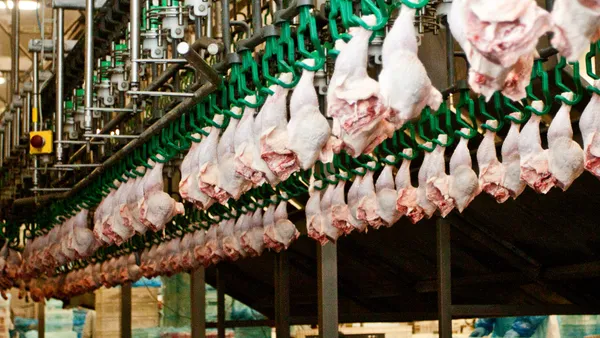The Biden administration called on Congress to fully fund a critical food assistance program for women and children as policy experts warn that roughly 2 million people could go without aid by next fall.
A budget stalemate pushed lawmakers to twice extend USDA funding earlier this year as part of a deal to avoid government shutdowns. However, neither of those extensions included full funding for the Women, Infants, and Children Program, which provides food assistance to millions of pregnant women, new mothers and babies.
The program now faces a $1 billion shortfall unless Congress adds more appropriations in a full-year agreement early next year when the latest USDA funding extension expires.
"If Congressional Republicans pass a budget without fully funding WIC, states will have no choice but to cut the number of people they serve," Neera Tanden, domestic policy advisor to President Joe Biden, said in a press conference Dec. 13. “This is simply unacceptable.”
While Congress did not appropriate additional funding in earlier spending agreements, it directed the USDA and states to spend allotted funding at faster rates to ensure everyone eligible can receive benefits through March 2024.
After funding runs out, the USDA expects states to add new or renewing applicants to wait lists to reduce costs. By September, the WIC program would serve about 2 million fewer women and children due to the lack of funds, according to the non-partisan Center on Budget and Policy Priorities.
However, the USDA said more than wait lists could be needed to make up the costs. States may need to discontinue or suspend benefits for certain participants, which is allowed as a measure of last resort.
“A federal funding shortfall of this magnitude presents states with difficult, untenable decisions about how to manage the program,” the USDA said in a statement.











